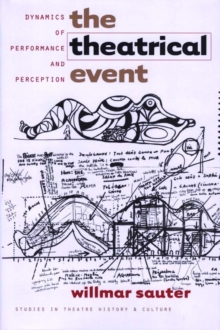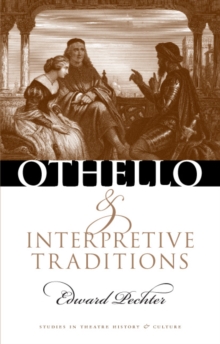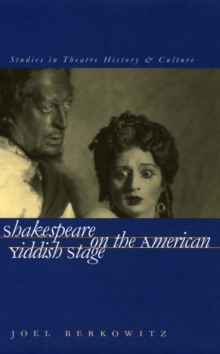
The Roots of Theatre : Rethinking Ritual and Other Theories of Origin PDF
by Rozik Eli Rozik
Part of the Studies Theatre Hist & Culture series
Please note: eBooks can only be purchased with a UK issued credit card and all our eBooks (ePub and PDF) are DRM protected.
Description
The topic of the origins of theatre is one of the most controversial in theatre studies, with a long history of heated discussions and strongly held positions. In The Roots of Theatre, Eli Rozik enters the debate in a feisty way, offering not just another challenge to those who place theatre’s origins in ritual and religion but also an alternative theory of roots based on the cultural and psychological conditions that made the advent of theatre possible.
Rozik grounds his study in a comprehensive review and criticism of each of the leading historical and anthropological theories. He believes that the quest for origins is essentially misleading because it does not provide any significant insight for our understanding of theatre. Instead, he argues that theatre, like music or dance, is a sui generis kind of human creativity—a form of thinking and communication whose roots lie in the spontaneous image-making faculty of the human psyche.
Rozik’s broad approach to research lies within the boundaries of structuralism and semiotics, but he also utilizes additional disciplines such as psychoanalysis, neurology, sociology, play and game theory, science of religion, mythology, poetics, philosophy of language, and linguistics. In seeking the roots of theatre, what he ultimately defines is something substantial about the nature of creative thought—a rudimentary system of imagistic thinking and communication that lies in the set of biological, primitive, and infantile phenomena such as daydreaming, imaginative play, children’s drawing, imitation, mockery (caricature, parody), storytelling, and mythmaking.
Information
-
Download - Immediately Available
- Format:PDF
- Pages:384 pages
- Publisher:University of Iowa Press
- Publication Date:01/04/2005
- Category:
- ISBN:9781587294266
Information
-
Download - Immediately Available
- Format:PDF
- Pages:384 pages
- Publisher:University of Iowa Press
- Publication Date:01/04/2005
- Category:
- ISBN:9781587294266










